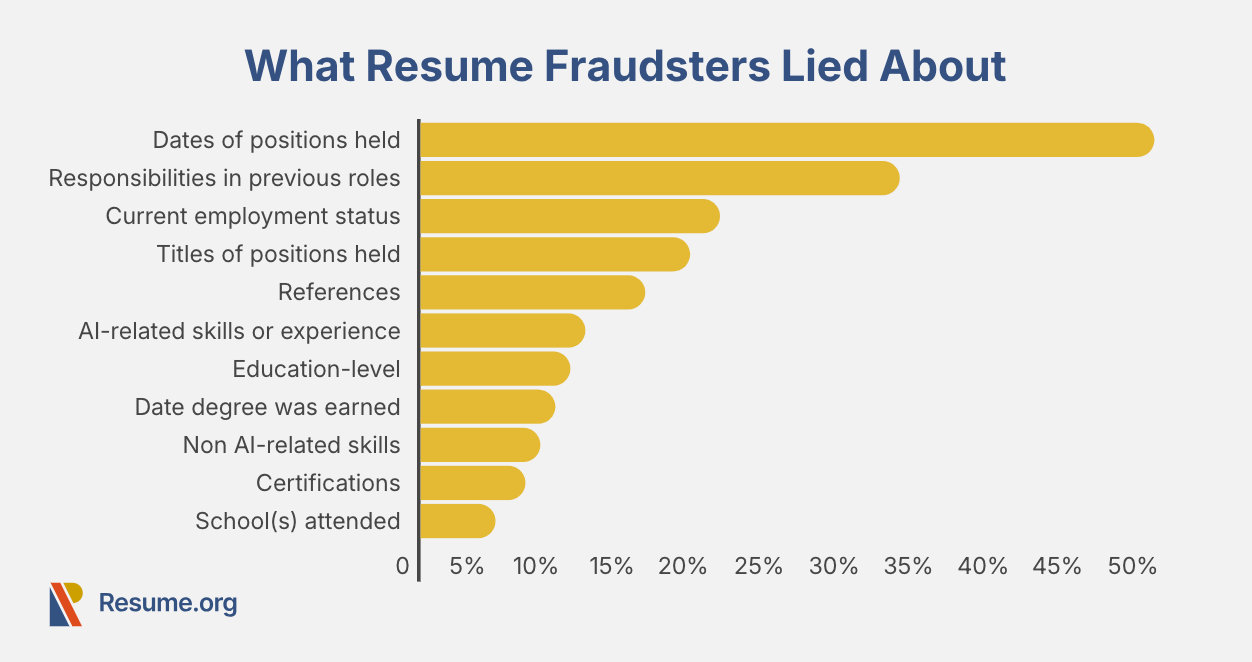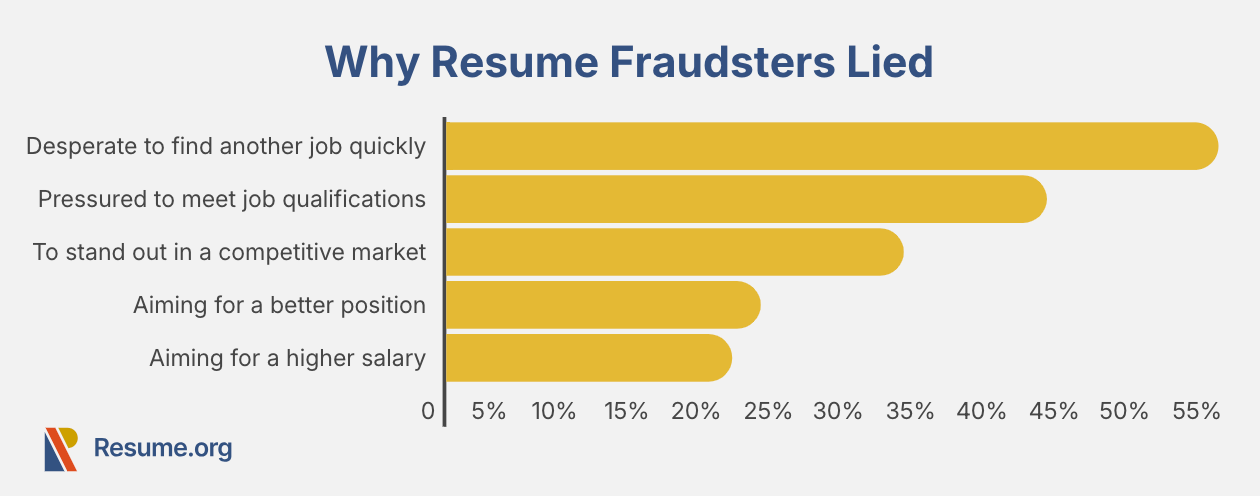Resume fraud occurs when a job applicant intentionally includes false or misleading information on their resume to make themselves a more attractive candidate.
To better understand why resume fraud is occurring, Resume.org surveyed U.S. adults who applied for a job this year using a fraudulent resume.
Major takeaways:
- 6 in 10 resume fraudsters received a job offer this year
- Resume fraudsters lied about positions held, employment status, AI-skills, and more
- Desperation was a key motivator for lying on a resume
- Nearly half believe they wouldn’t have received an offer without lying
- Men and Gen Zers were more likely to commit resume fraud than their counterparts
6 in 10 Resume Fraudsters Successfully Landed a Job
The majority (63%) of job seekers who applied for positions this year using a fraudulent resume received an offer. Of those who received offers, 70% accepted the position.
Despite the deceit on their resumes, 96% of respondents say their employer never discovered the misrepresentations, while only 4% report their dishonesty was uncovered.
Most resume fraudsters applied to multiple jobs. Only 4% report applying to just one job in 2024. About 35% applied to between two and five jobs, and 19% applied to between six and ten jobs. Additionally, 28% applied to 11-50 positions, 7% applied to 51-100 jobs, and another 7% applied to over 100 jobs.

When it came to the extent of their resume misrepresentations, 42% say they lied on every resume they submitted, and 22% say they lied on most of them. On the other hand, 25% say they lied on some resumes, while 12% say they only lied on a few.
Nearly half feel they wouldn’t have received an offer without lying
While about half (54%) of individuals who lied on their resume believe they would have received a job offer even without misrepresenting themselves, 46% believe they probably (29%) or definitely would not have (17%).
Maxime Bouillon, Co-founder & CEO at Archie says candidates face significant risks when they misrepresent their qualifications.
“In my experience, companies increasingly prioritize verification, meaning that falsifying credentials or skills can quickly lead to disqualification, job loss, or even damage to one’s professional reputation. Beyond immediate consequences, there are long-term risks—many industries, especially tech and finance, have networks where reputational damage can limit future opportunities.
“With advancements in verification technology, detection is now more probable than ever. Employers commonly conduct background checks, contact references, and even employ AI tools to validate qualifications and employment history. This means that any form of dishonesty, however small, carries an inherent risk of exposure.”
Job Seekers Lied About Positions Held, Employment Status, AI Skills, and More
The most common lies job seekers included on their resumes were altering the dates of positions held (50%), exaggerating responsibilities or experience in previous roles (32%), and misrepresenting their current employment status (21%). Resume fraudsters also falsified job titles (18%), lied about AI-related skills (11%), and provided inaccurate references (15%).

Desperation Fueled Reasons for Lying
The primary reasons job seekers lied or misrepresented themselves on their resumes were urgency and competition. Over half (54%) were desperate to find a job quickly, 42% felt pressure to meet job qualifications, and 32% wanted to stand out in a competitive job market. Additionally, 22% aimed for a better position, and 20% sought a higher salary. Only 9% cited other reasons for their dishonesty.

7 in 10 Would Lie Again
When asked if they would consider lying on their resume again in the future, 73% of respondents say they definitely (36%) or probably (37%) would.
Additionally, 81% of respondents believe it’s the hiring manager’s responsibility to verify the accuracy of information on a resume.
Our survey found that men lie twice as much as women (5% vs. 2.5%), and Gen Zers lie at a slightly higher rate (4%) than other generations.
Methodology: Resume.org surveyed 9,133 U.S. adults who applied for a job in 2024 using a resume. Overall, 3% intentionally misrepresented or lied on their resume, and this group completed the full survey. The survey was conducted via Pollfish in October 2024.
To view all of our other research and studies go to our research page.